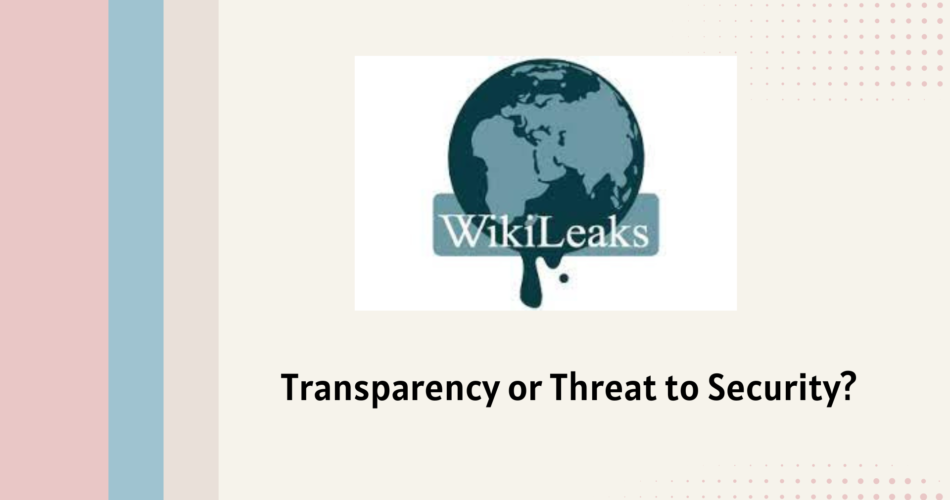WikiLeaks, a non-profit organization founded in 2006 by Julian Assange, has made its mark on the world stage by publishing classified information, diplomatic cables, and corporate documents that would otherwise remain hidden from public view. While its stated aim is to promote transparency and hold powerful individuals and institutions accountable, WikiLeaks has become a source of intense controversy, sparking debates about freedom of speech, national security, and the ethics of journalistic practice.
Origins and Core Mission:
Assange, an Australian computer programmer, established WikiLeaks with the belief that the public has a right to access information that governments and powerful entities often try to conceal. The organization operates through a network of volunteers and utilizes a secure online platform to allow individuals to anonymously submit classified documents.
Landmark Leaks and Global Impact:
WikiLeaks has been at the center of several high-profile leaks that have shaken the world stage. Some of the most notable include:
2010: Afghan War Logs and Iraq War Logs: The release of these classified documents exposed the human cost of the wars in Afghanistan and Iraq, revealing civilian casualties and internal discussions about the conflicts.
2010: US Diplomatic Cables: The leak of over 250,000 diplomatic cables from the US State Department provided a glimpse into the inner workings of US foreign policy, sparking international tensions and raising concerns about confidentiality in diplomacy.
2016: Democratic National Committee (DNC) Emails: The release of internal emails from the DNC during the 2016 US presidential election campaign raised accusations of interference in the Democratic primaries, further intensifying existing political divisions.
These leaks have had a profound impact globally, triggering investigations, influencing public opinion, and fostering discussions about government transparency and accountability. However, WikiLeaks’ methods have also garnered widespread criticism.
Criticisms and Controversies:
WikiLeaks has been accused of:
Endangering national security: Critics argue that releasing classified information can compromise national security by exposing sensitive intelligence and diplomatic strategies.
Selectivity and bias: Some allege that WikiLeaks selectively leaks information that aligns with its own agenda, potentially undermining its claim of neutrality.
Lack of editorial control: Concerns have been raised about the lack of editorial control over the authenticity and accuracy of the leaked materials, potentially leading to the dissemination of misinformation.
Jeopardizing the safety of sources: Critics argue that WikiLeaks’ practices put the safety of individuals who provide confidential information at risk.
The Future of WikiLeaks and the Debate over Transparency:
WikiLeaks continues to operate, and its founder, Julian Assange, remains a controversial figure. He was arrested in 2019 and faces extradition charges to the United States related to the publication of classified information.
The organization’s activities have sparked ongoing debates about the balance between transparency, national security, and individual rights. While WikiLeaks has undoubtedly shed light on important issues and challenged powerful entities, its methods and the potential consequences of its actions continue to be fiercely debated.
Conclusion:
WikiLeaks occupies a unique and controversial space in the information landscape. Its supporters hail it as a champion of transparency, while critics condemn its methods and question its motives. The ongoing debate surrounding WikiLeaks underscores the complex issues surrounding access to information, national security, and the role of the media in a world saturated with information. As the organization and its legacy continue to be contested, the conversation around transparency and accountability in the digital age is likely to remain a prominent concern in the years to come.
